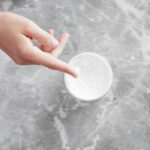
Bakuchiol has surged in popularity as a natural alternative to retinol in skincare. Derived from the seeds of the babchi plant (Psoralea corylifolia), bakuchiol has a rich history in Ayurvedic and traditional Chinese medicine for treating tumors and skin inflammation. Today, it is prominently featured in anti-aging skincare products such as serums, creams, and oils.
Like retinol, bakuchiol promotes cell turnover, leading to a more even skin tone and reduced wrinkles. However, it lacks the skin-irritating side effects often associated with retinoids, making it suitable for those with dry or sensitive skin.
How Does Bakuchiol Work?
When applied topically, bakuchiol accelerates skin cell turnover, replacing dead cells with fresh ones more rapidly. This process stimulates collagen production and exfoliates the skin, enhancing texture and tone. Research shows that bakuchiol boosts collagen types I, III, and IV, essential proteins that provide skin structure and flexibility. As we age, collagen production decreases, leading to wrinkles and dry skin. By increasing collagen levels, bakuchiol can help plump the skin and improve elasticity, thereby diminishing fine lines and wrinkles.
Bakuchiol also functions as an antioxidant, protecting cells from damage caused by environmental factors and UV exposure. This antioxidant property not only helps prevent premature wrinkles and fine lines but also aids in repairing already damaged skin.
Bakuchiol vs. Retinol
Retinoids, including retinol, are vitamin A derivatives used to enhance skin texture, treat acne, and reduce fine lines. Both retinol and bakuchiol are available over-the-counter in forms like serums and creams. Retinol is generally weaker than prescription-strength retinoids, which are more effective for treating acne, acne scarring, and hyperpigmentation. Bakuchiol, being plant-based, contrasts with many retinol products that are derived from animals.
Both bakuchiol and retinol stimulate collagen production and cell turnover, plumping the skin, unclogging pores, smoothing texture, and reducing hyperpigmentation. Despite similar effects, retinoids have more extensive research supporting their efficacy. However, retinoids are notorious for side effects such as peeling, dryness, redness, and burning, especially on sensitive or dry skin. Bakuchiol, in contrast, typically does not cause these irritating side effects and enhances moisture retention, making it a preferable option for those with sensitive or dry skin.
Both bakuchiol and retinoids can increase sun sensitivity. However, studies indicate that bakuchiol is more stable under UV light than retinoids, potentially reducing the risk of burning and sun damage.
The Benefits of Bakuchiol
While bakuchiol is not as extensively studied as retinol, preliminary research indicates that it may offer similar anti-aging benefits without the associated side effects. A 12-week study demonstrated that participants who used bakuchiol skincare twice daily saw significant improvements in fine lines, wrinkles, skin elasticity, firmness, and photoaging without experiencing the irritation common with retinol.
Another study found that bakuchiol cream applied twice daily for 12 weeks reduced wrinkles and hyperpigmentation as effectively as a 0.5% retinol cream, but with fewer reports of stinging and scaling. Though fewer studies have examined bakuchiol’s effects on acne and acne scarring, one small study in 2021 showed that a 0.5% bakuchiol cream used twice daily for 12 weeks helped reduce mild-to-moderate acne and improve post-inflammatory hyperpigmentation, particularly in darker skin tones. This is significant because retinoids can sometimes exacerbate hyperpigmentation in darker skin types due to their irritating nature.
How To Use Bakuchiol in Your Skincare Routine
Bakuchiol skincare products come in various forms, including serums, creams, oils, and peels. Serums, with bakuchiol as the primary active ingredient, are particularly popular.
To integrate bakuchiol into your skincare routine:
- Cleanse your face with a gentle cleanser.
- Optionally, apply a toner for extra hydration or oil removal.
- Apply a pea-sized amount of bakuchiol serum to your face, neck, and chest, following the product’s instructions.
- Follow with a moisturizer.
- If using bakuchiol during the day, apply sunscreen with an SPF of 30 or higher.
For bakuchiol moisturizing creams, use them day and night in place of your regular moisturizer. Bakuchiol oils should be applied after moisturizing, and peels should be used at night after cleansing and before moisturizing, following the product instructions.
Side Effects of Bakuchiol
Bakuchiol is generally gentler and more tolerable for sensitive skin compared to retinol. However, some individuals may experience redness and peeling initially. Bakuchiol can also increase sun sensitivity, so it is crucial to use sunscreen with at least 30 SPF daily to prevent skin damage and sunburns.
Although bakuchiol is not a vitamin A derivative like retinoids, and therefore might seem safer for pregnant people, there is no research confirming its safety during pregnancy. Thus, it is advisable for pregnant individuals to avoid using bakuchiol until more information is available.
Summary
Bakuchiol presents a promising natural alternative to retinol, offering similar anti-aging benefits without the common side effects. It enhances collagen production, improves skin texture and tone, and provides antioxidant protection, making it suitable for sensitive and dry skin types. While more research is needed to fully establish its efficacy, bakuchiol’s potential and gentle nature make it a valuable addition to any skincare routine
A Quick Review
Bakuchiol, derived from the babchi plant, is a natural alternative to retinol. It enhances cell turnover and collagen production, improving skin texture and reducing fine lines without the irritation often associated with retinol. Suitable for sensitive and dry skin, Bakuchiol also acts as an antioxidant, protecting against environmental damage. Studies show it effectively reduces wrinkles and hyperpigmentation, making it a promising addition to your skincare routine.












